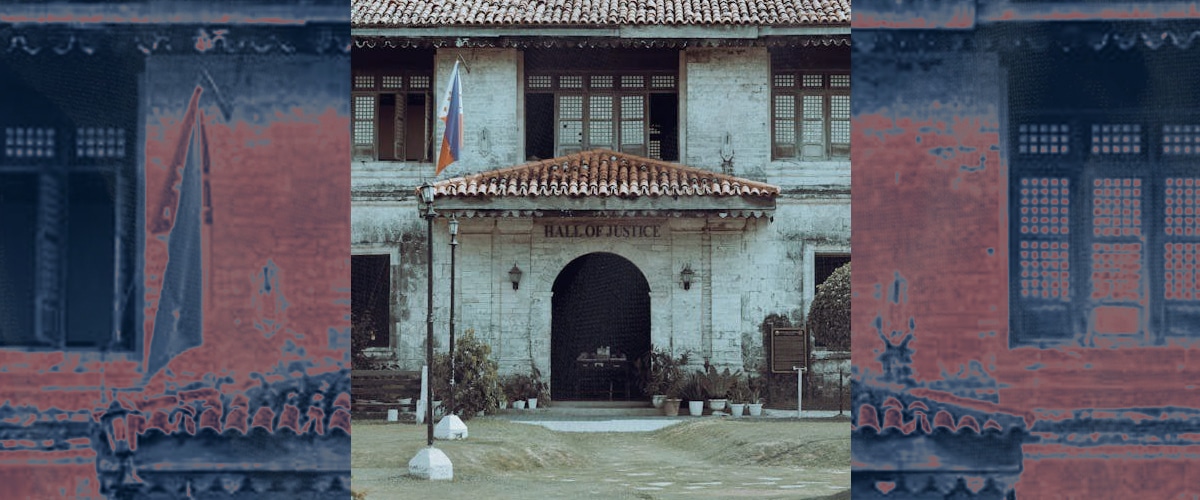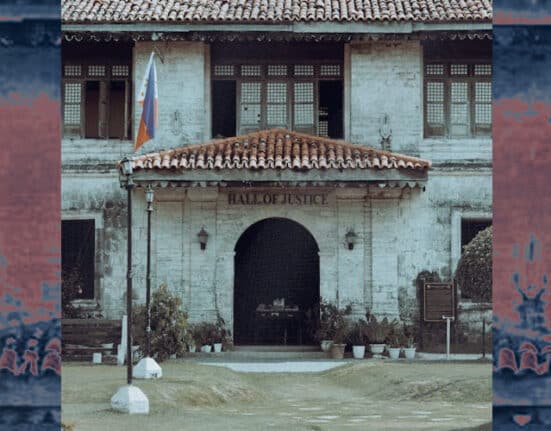THE story of our independence is taught early.
At school, we learn to memorize historical facts. We learn that it was the year 1898 when the Philippine flag was first raised, when Emilio Aguinaldo declared the country free from Spanish rule in Kawit, Cavite. We recite names of heroes and dates of battles. We sing the national anthem with our hands over our hearts, our eyes trained on the flag as it dances with the wind.
It is a proud narrative— one etched in monuments and retold every June 12 with parades, salutes, and televised ceremonies. It teaches us that we are free people.
But as we grow older, the picture begins to blur.
We become acquainted with systemic challenges. Graft and corruption no longer appear as rare offenses but as routine headlines. We witness injustices— in the streets, in courtrooms, in the very institutions meant to protect us.
And over time, these stories lose their sting. They become expected. Normal.
We begin to understand that freedom— this freedom that we have gotten from the hands of the colonizers— does not always come with dignity. Nor with safety. Nor with a real choice.
So when young Filipinos take to the streets, raise difficult questions, or challenge the status quo, they are not defying freedom— they are measuring it.
Because in a nation that proudly proclaims its independence, the deeper question remains:
Are we truly free?
The fight for fairer classrooms
For the 21-year old James Joson, freedom is not merely the ability to do what one wants. More so, it’s the ability to exercise one’s rights through informed, thoughtful decisions. It’s knowing the choices available, understanding their consequences, and having the tools to act on them.
“As someone who has been working closely with the youth, I believe that the Filipinos are politically independent but do not have a truly deeper sense of the word,” said James when asked if he thinks Filipinos are truly free.
“Freedom does not only exist in our national sovereignty— it should also exist in the Filipinos ability to think critically, make informed choices, and discern the rights and wrongs,” he added.
James’ perspective is shaped by his personal experiences. As a youth leader and the current spokesperson of Kilos Ko Youth, he has seen firsthand how the lack of access to quality education undermines the very foundation of the country’s democracy.
“My leadership awakening came in the 2022 Local and National Elections,” he shared.
At the time, James was a volunteer in his province for a progressive political tandem. It was there that he saw how misinformation and disinformation were weaponized to sway public opinion.
“Unfortunately, many Filipinos are easily influenced by the fake news they encounter on social media—this mirrors the current state of education in the country,” he said.
He believes this vulnerability stems from the public’s limited literacy and critical thinking skills, which make them more susceptible to manipulation.
“As a leader, I have witnessed firsthand how widespread misinformation has been easily digested by the Filipinos— and I believe that this is a product of a much deeper systemic oppression and lack of knowledge resource,” James continued.
“I believe that we should be stewardess of knowledge, pushing not just for media literacy but for easier access to quality education that the Filipinos deserve.”
James believes that the lack of access to education—especially quality education—continues to hinder the Filipino people’s freedom to form and critically assess their own political will.
While colonial rule may be a thing of the past, he argues that many Filipinos remain imprisoned by the invisible bars of limited knowledge and access to reliable information—conditions that help perpetuate the status quo and enslave them to the agenda of those in power.
“My dream for the nation’s future is to produce more leaders that will advocate for quality and accessible education,” shared James.
“Education reform is complex and would be a hard challenge for us to fulfill. I really believe that [if] we would have our own political will, the youth’s active involvement and collective action— we can provide education that will never leave a Filipino behind.”
Still grappling with colonial past
“I stand that the Filipino people are not truly free.”
This is the assertion of the 25-year old Siegfred Severino, the current Secretary-General of the National Union of Students of the Philippines – Southern Tagalog (NUSP-ST) and former student regent of University of the Philippines system.
“We are still shackled by the imperialist influence of [the] USA and other big countries that exploit our country,” he said.
Siegfred’s perspective was shaped by his experiences as a student—and later, as a student leader—at the University of the Philippines Los Baños (UPLB).
“I had my political awakening during my 2nd Semester of my Freshman Year at UPLB. It was 2018 and our batch is the first Freshmen Batch of UPLB to enjoy the benefits of the Free Tuition Law for S/LUCs. However, I soon realized that higher education is still not free,” he said.
“During my second semester enrollment, the enlistment of courses is like entering a lottery. There were limited slots and we had to compete with hundreds of students for it,” he added.
“Additionally, certain courses require additional equipment, laboratory manuals, or other resources that the students need to buy. Despite not paying tuition, higher education is still very costly and I realized that we still have a long way to go in gaining genuine free education.”
Siegfred joined their Student Council and continued to advocate for Free Education and Students Rights and Welfare. His experiences as a youth leader opened his eyes to the kind of freedom “allowed” in our system.
“In my work in the youth and students sector, I witnessed how our education institutions are truly just a factory that churns out graduates. [Then] they are treated as semi-skilled and cheap laborers by big businesses and trans and multinational corporations,” he said.
Siegfred learned that the Philippine’s educational curriculum itself is designed to “address the needs and demands of the global market led by the US, instead of having nationalist characteristics that are geared towards the development of our national industries.”
“As long as our resources are used up for the benefit of the other countries, and our economy and politics are tied to the USA, we will not be truly independent,” he added.
What Siegfred describes is not unique to his own experience—it reflects a broader system of neocolonial and neoliberal education that continues to shape the Philippine academic landscape.
In a neocolonial context, education serves as a tool to sustain foreign influence by conditioning students to meet the demands of external markets rather than nurturing local development.
Neoliberal policies, on the other hand, have commodified learning—transforming education into a privilege rather than a right. These policies prioritize efficiency, privatization, and market-driven outcomes, often at the expense of accessibility and national relevance.
As a result, Filipino students are trained not to become nation-builders, but to fit into a global labor force that exploits their skills while the country’s own industries remain underdeveloped and dependent.
This is the kind of system that Siegfred hopes to dismantle.
“My dream is to experience a society where basic social services are accessible to the masses. I want the future generation to have free, quality, and accessible education, healthcare, and housing,” he said.
He envisions a future shaped by nationalist, scientific, and mass-oriented programs—systems built for Filipinos, by Filipinos.
“In order to achieve this, we have to forward and fight for pro-people socio-economic reforms to give immediate relief to the marginalized,” said Siegfred.
But more importantly, Siegfred emphasized that there should be a change in our political systems and dynamics.
“We have to ensure that the political power will be removed from the elites, and returned to the toiling masses,” he said.
More than a holiday
We see it every June— flags raised, drums rolling, speeches echoing through grand locations.
But freedom is more than a holiday. It is more than just a parade. It should not be measured in symbols and pageantry.
It is found—or lost—in classrooms without books, in youths who must leave their homes to find a future, in choices shaped by what’s missing. It must be felt—in the everyday, in the decisions we make without fear, in the dreams we are allowed to chase.
James dreams of classrooms where no child is silenced by the weight of ignorance, where education is not a privilege handed down but a birthright honored.
Siegfred sees a future where the nation no longer answers to foreign markets, but to the needs of its own people—a country where power no longer sits with the few but rises with the many.
And it is the youth who carry these dreams forward. It is in their refusal to stay quiet, in their courage to ask better of a broken system, that freedom finds its sharpest edge.
For them, Independence Day is not a memory—it is a mission. The fight continues, not behind monuments, but in classrooms, in communities, in the streets.
And until justice is felt as deeply as history is remembered, the struggle for true freedom lives on.
How useful was this post?
Click on a star to rate it!
Average rating 3 / 5. Vote count: 2
No votes so far! Be the first to rate this post.
We are sorry that this post was not useful for you!
Let us improve this post!
Tell us how we can improve this post?




